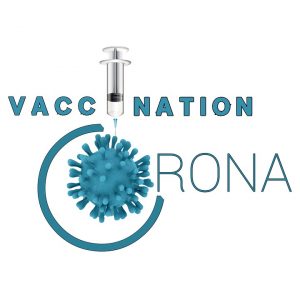The rollout and distribution of the COVID vaccine says something about our individual and cultural values, but is it anything we want to admit?
In the weeks since the first COVID vaccine was administered, the “Fauci Ouchie” has become one of the most sought-after goods in the world. As with any scarce yet critical resource, shenanigans abound. How the vaccine is distributed, and who gets to join the ranks of the Innoculata, however, carry more meaning than simple immunity to the virus alone. There are compelling social and legal implications that warrant further consideration.
The pandemic is a world-spanning problem that puts every human being (and a fair number of other creatures) at risk of life-changing medical conditions and even death. As such, how we distribute the COVID vaccine speaks to our values, both culturally and as individuals.
It would make sense to distribute the vaccine to the most vulnerable people first. According to one study, one in every 475 Native Americans has died from COVID-19, making them more susceptible the virus than other groups. Sensibly, healthcare workers in Canada’s Yukon territory prioritized vaccinating the White River First Nation due to their high risk elderly population and remote location, with the nearest hospital a five-hour drive away. Sensing an opportunity, however, casino executive Rodney Baker and his wife Ekaterina chartered a private flight from their home in Vancouver last month in order to co-opt doses of vaccine meant for Indigenous elders. The Bakers were each fined US$900 for violating quarantine and Rodney resigned from his cushy job after they were caught, but is that all they deserve?
The Bakers are far from the only privileged people to shove more at-risk groups aside in order to score a dose of COVID vaccine. When the city of New York made the vaccine available to retirement-age residents, George Jones, who runs Bread for the City, a nonprofit clinic serving a disproportionately poor, African-American neighborhood, noticed that wealthier, white people from further afield were filling all the open appointment slots. A clinic in Washington Heights, a Latinx neighborhood in NYC, noticed a similar influx. It’s a scenario repeated across the country. In Philadelphia, only 7% of vaccine recipients are African-American, although they comprise 17% of the population and experience 60% greater mortality from COVID-19 than white residents.

Internationally, the disparity is stark. UN secretary general António Guterres noted last week that only ten countries had administered 75% of the available doses of COVID vaccine, and 130 of the poorest countries hadn’t received any at all. The United States isn’t the only country where privilege and power have limited vaccination of the more vulnerable, either. Israel, held up as a world leader for its early and high vaccination rate, recently allowed the first vaccines to trickle into Gaza after weeks of delay, enough to inoculate 1,000 of the 2,000,000 Palestinians who live there.
Meanwhile, employers in the U.S. have found it necessary to incentivize front line workers to get vaccinated. On the same planet where rich executives take shots meant for Native elders and poor countries are still waiting for help to arrive, McDonalds and Target are offering employees four hours of bonus pay if they will roll up their sleeves and take one for the team. Many other employers are offering similar bonuses, free rides to vaccination sites, and stipends. Like the wellness programs that employers have embraced in the last decade in order to reduce bottom-line costs, COVID vaccine perks could run afoul of privacy laws or risk appearing coercive if employers offer significant bonuses instead of, say, a T-shirt or water bottle. Legally, it’s a situation worth watching.
If COVID vaccine distribution is indicative of our value system, it sure appears that we care more about maintaining the hegemony of society’s more privileged people, whether they be white, rich, or corporate, than we do about providing vaccines to the people most in danger from the virus. Perhaps it’s worth consideration before we go widening the power differential even further by granting special privileges to members of the Innoculata. We all want to get back to some semblance of normality, but either we’re all in this together, or we’re headed somewhere ugly indeed.
Related: A Better Kind of Community Spread


Join the conversation!